PASSION FOR POLLINATORS
Fuata nyuki ule asali ~ Follow the bees to eat honey
Swahili proverb
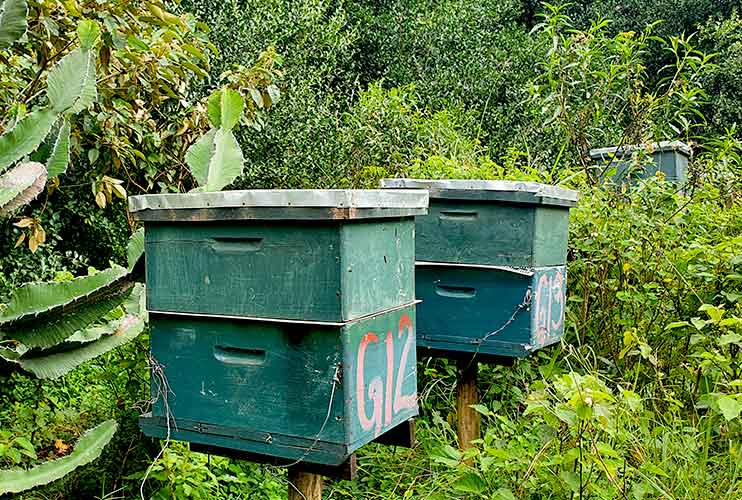
Beehives at Giraffe Manor
Today is World Bee Day, so we’re celebrating the ‘nectar of the Gods’ and everything these incredible insects do for us and our planet. We’re also launching our brand-new honey: one hundred percent natural, Kenyan honey harvested at Giraffe Manor to support Our Footprint.
Honey gathering is one of the most ancient human activities, with honey hunters depicted on cave paintings as far back as 8,000 B.C. There is also a long and fascinating history of the co-evolution of the honeyguide bird and humans. Unlike most birds, honeyguides have an innate tendency to embrace people, guiding them to beehives hidden in tall trees or trunk cavities. After the hive is opened and the honey harvested, these clever little birds feast on the calorie rich larvae in the wax.
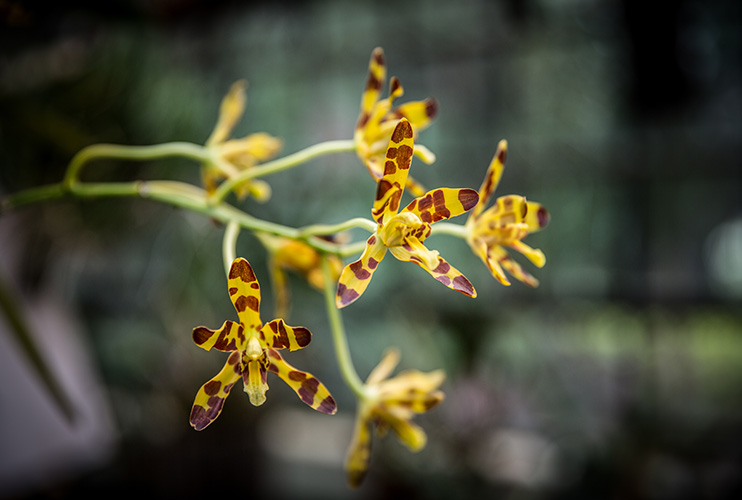
Blooming at Giraffe Manor ©Mark Boyd
At Giraffe Manor we’ve been doing some honey harvesting of our own. With a gardenful of flowers buzzing with bees it was only natural. Afterall, honeybees produce around two to three times more honey than they need to survive winter in the hive, which is lucky for us.
Our wooden hives are scattered throughout the 150-acre giraffe sanctuary surrounding the manor house, where the bees forage on a beautiful mix of indigenous trees and flowers. The resulting honey is delicate, light and delicious. A team of local Kenyan beekeepers maintain the hives and harvest the honey. Honeyguides live in the forest at Giraffe Manor too, but as our hives are not wild, we don’t need the birds to show us where they are!
100% of profits from Giraffe Manor honey
go to our Footprint Foundation
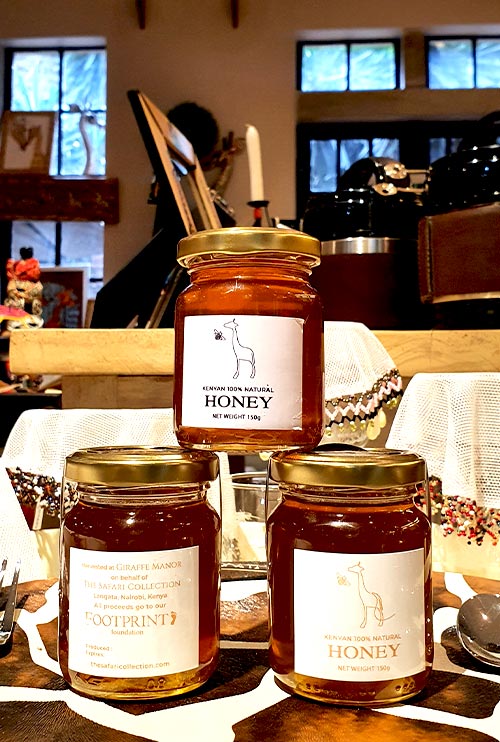
Giraffe Manor shop
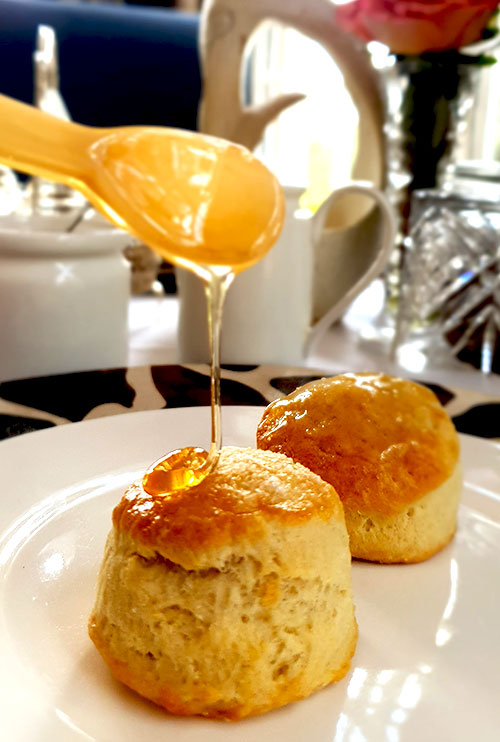
Homegrown honey at teatime
Our honey is available for our guests to buy at Giraffe Manor Shop in Nairobi and makes a wonderful memento of time spent in Kenya or a yummy gift for friends. What’s more, all profits go to our Footprint Foundation which supports a range of community and conservation projects across Kenya. You will taste it if you stay in any of The Safari Collection properties.
As top pollinators, bees protect and maintain ecosystems and are key players in conserving our planet’s biodiversity. What’s more, they are vital in maintaining our food security. Over 75% of crops grown for food depend on pollinators like bees. Apples, strawberries, almonds, onions, pumpkins and a whole range of other nutritious fruits, seeds, nuts and vegetables all rely on bees to pollinate them. Promoting the protection of our planet’s pollinators, which includes bees, is essential for our own survival.
‘Bee’ in the know, buy local honey to support beekeepers
and spread awareness of how precious these incredible
insects are to life on earth.
To learn about all the fantastic community and conservation projects our honey proceeds will support, visit Our Footprint page.
Happy World Bee Day!
RELATED NEWS

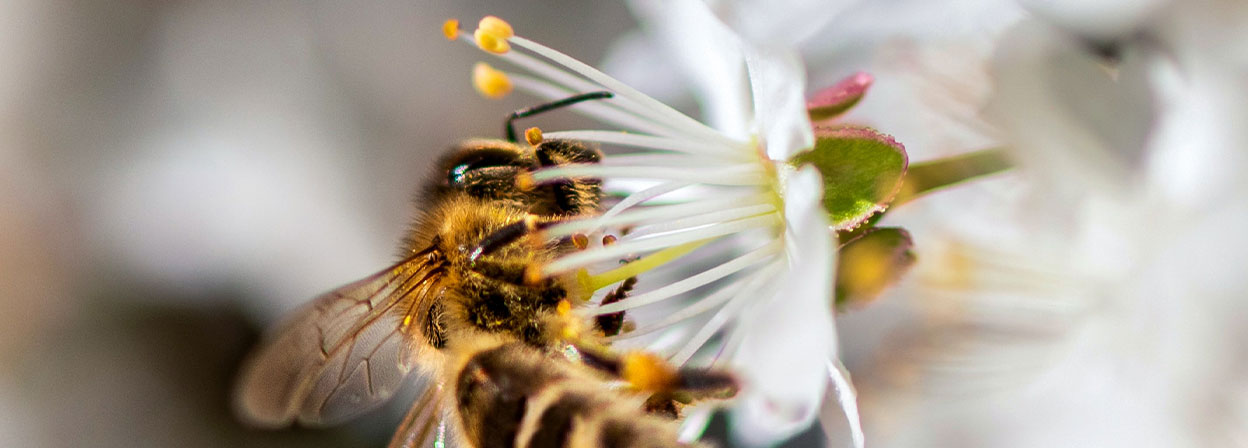
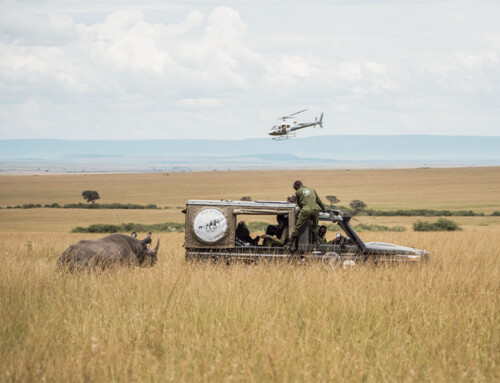

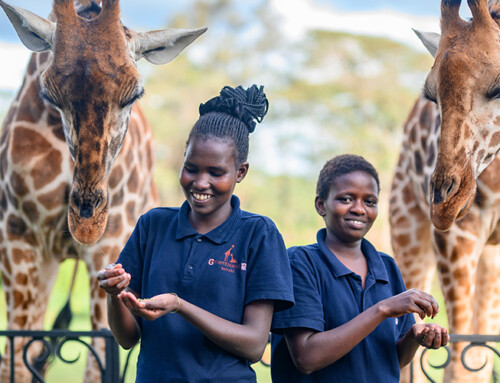
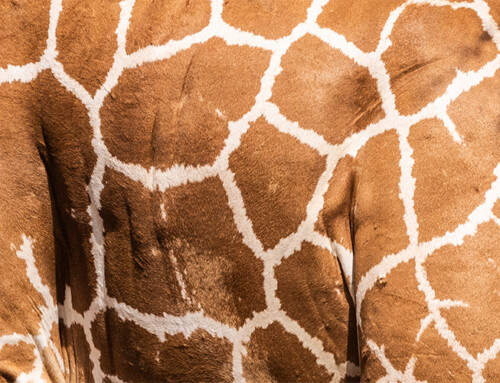
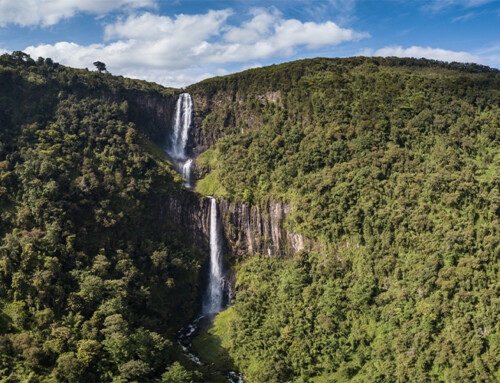
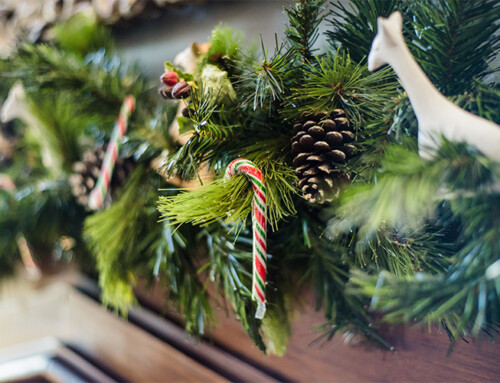
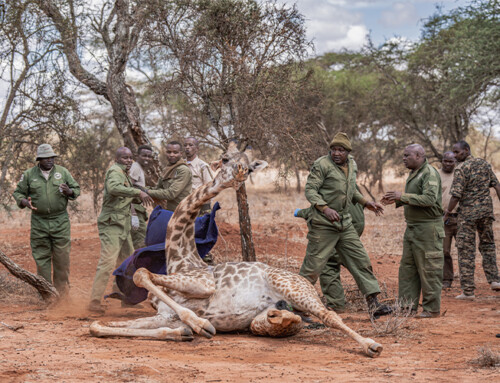
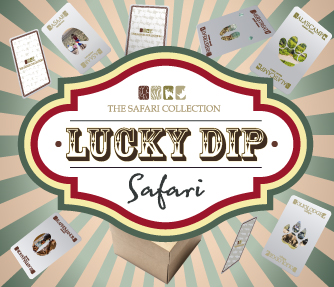






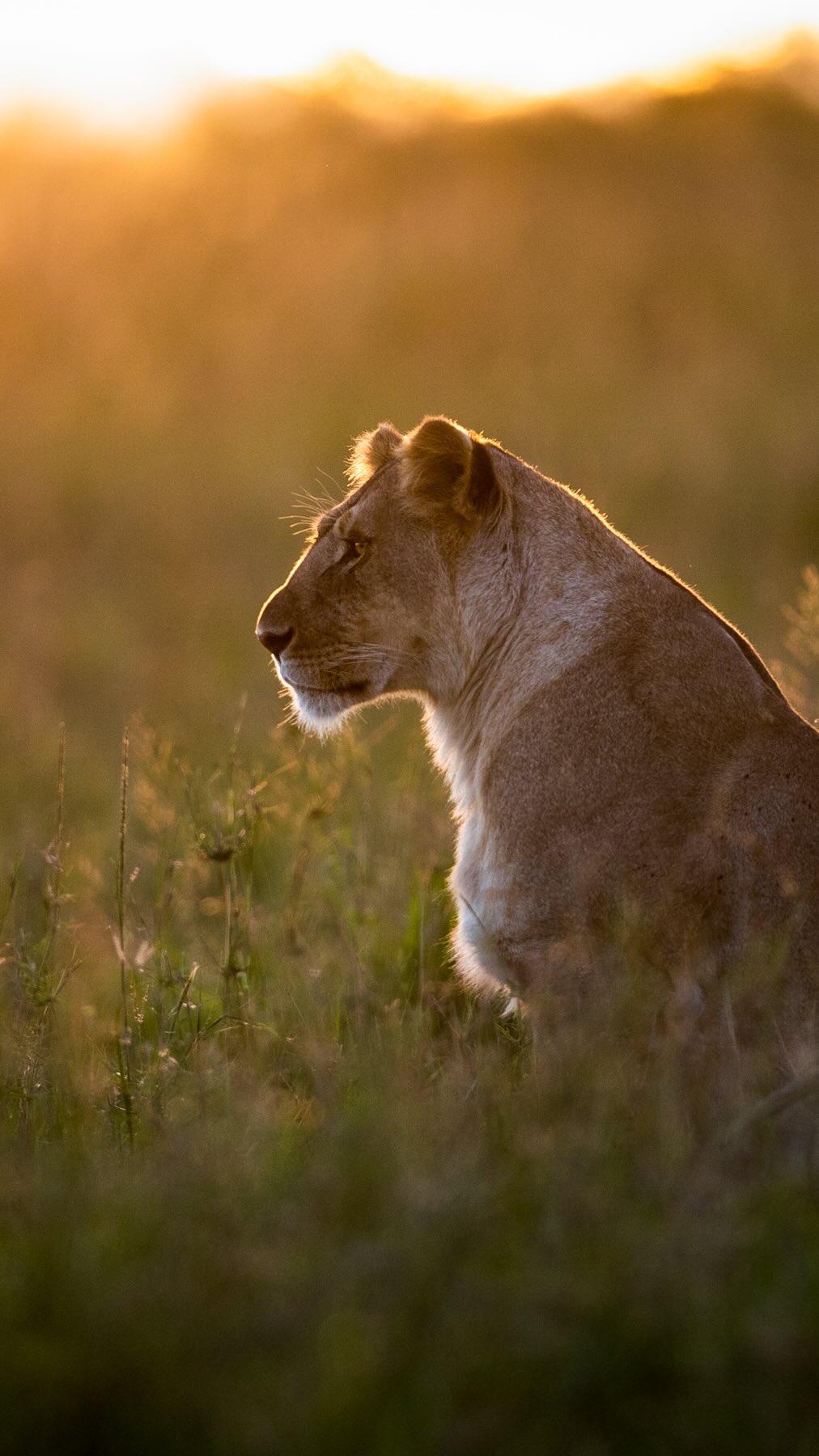
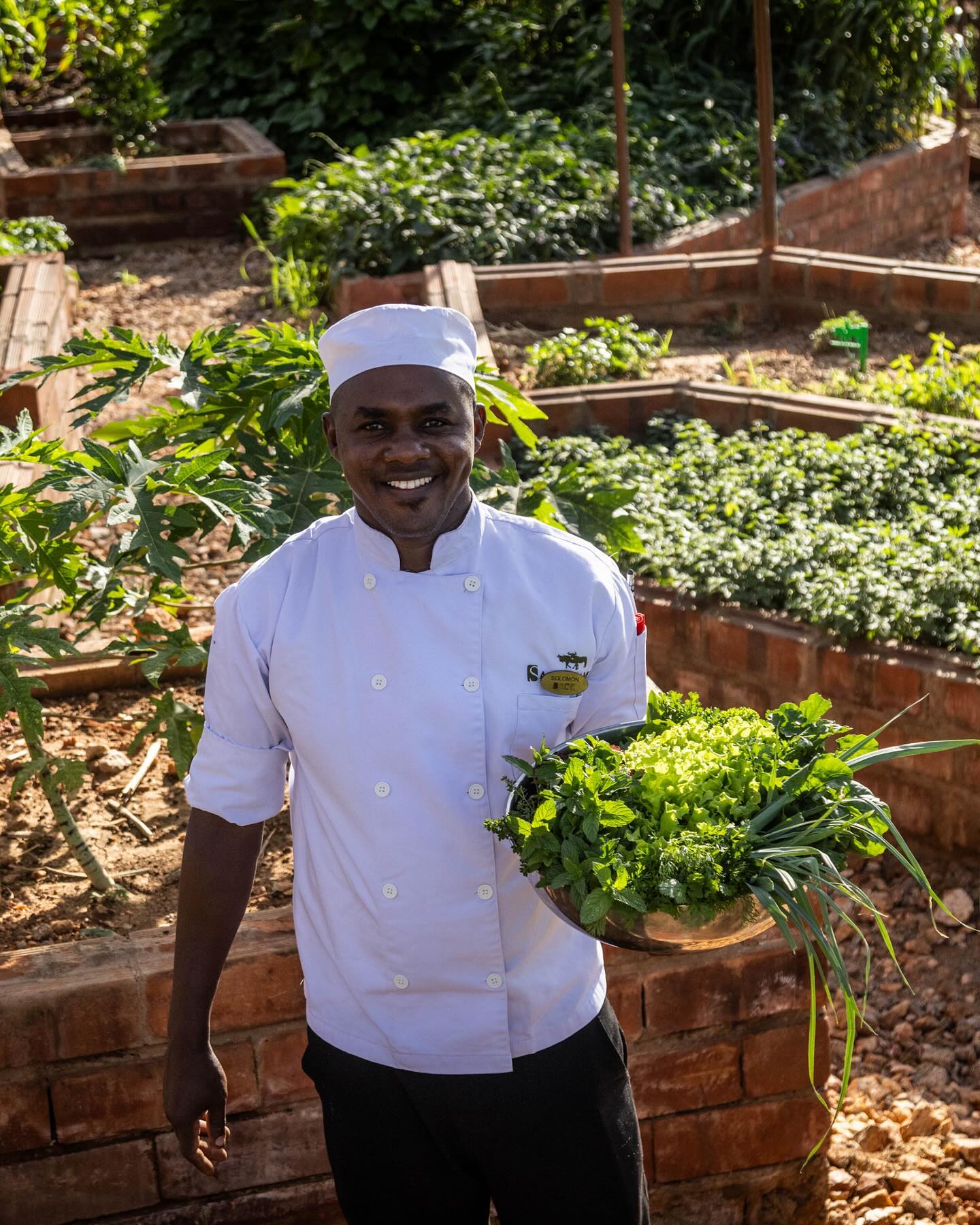
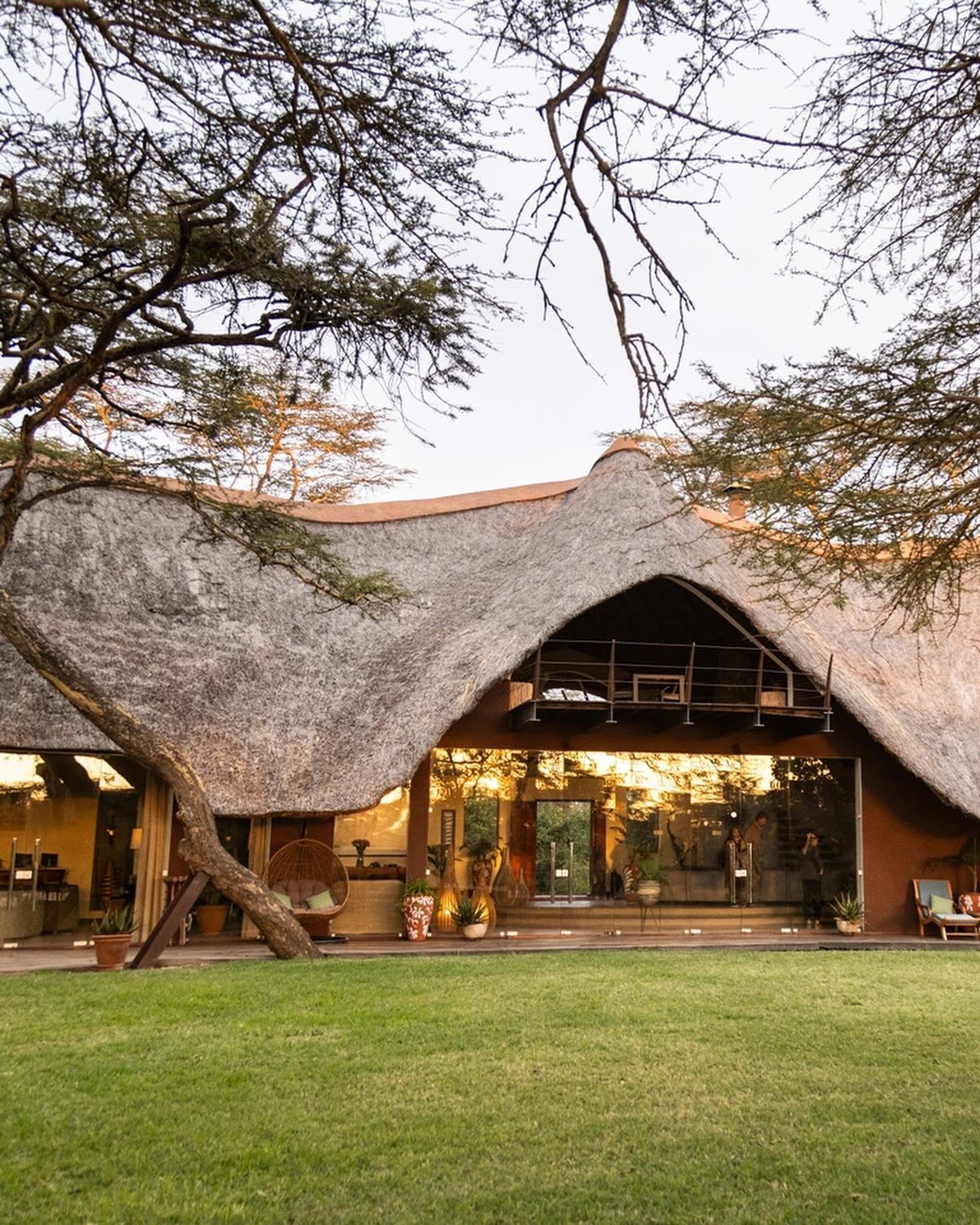
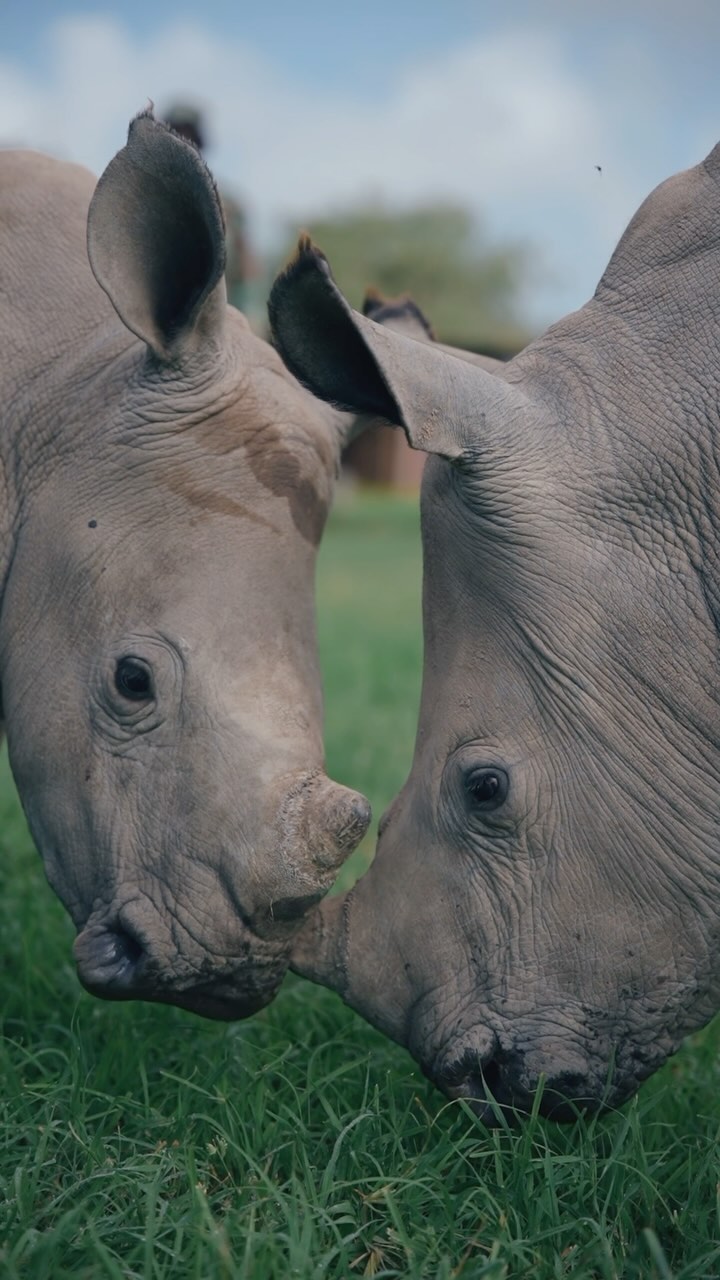

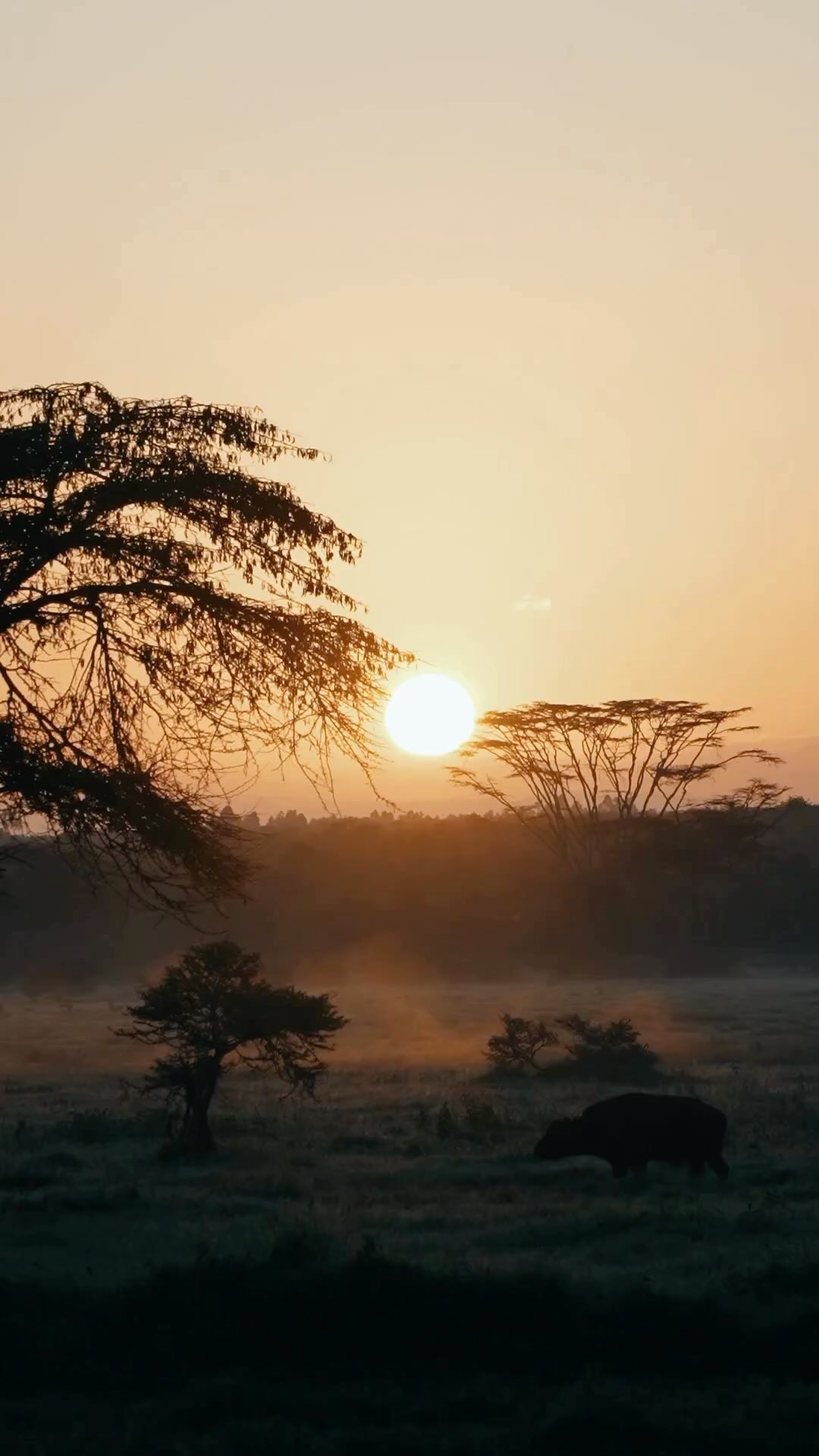
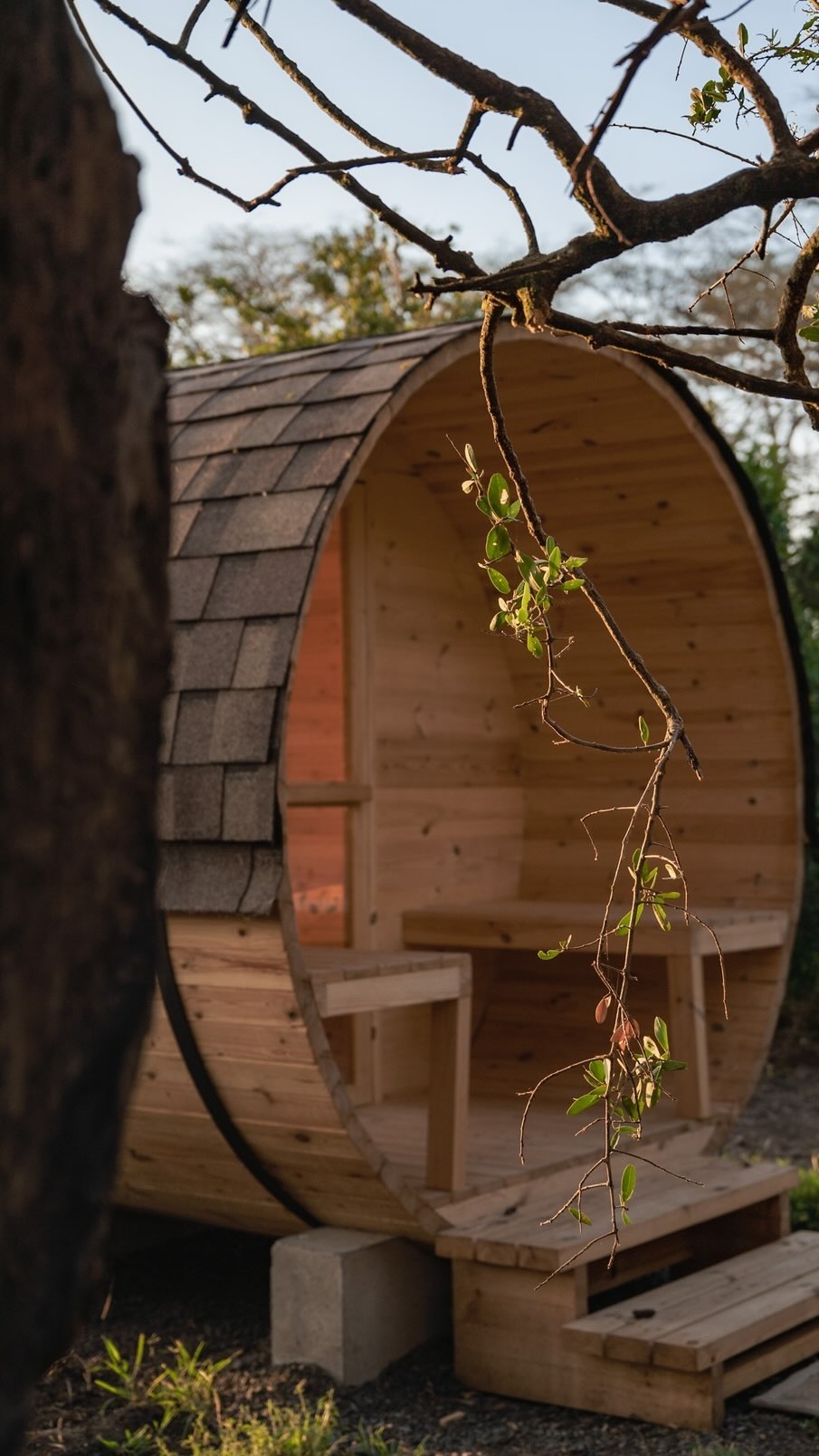

CONNECT & FOLLOW